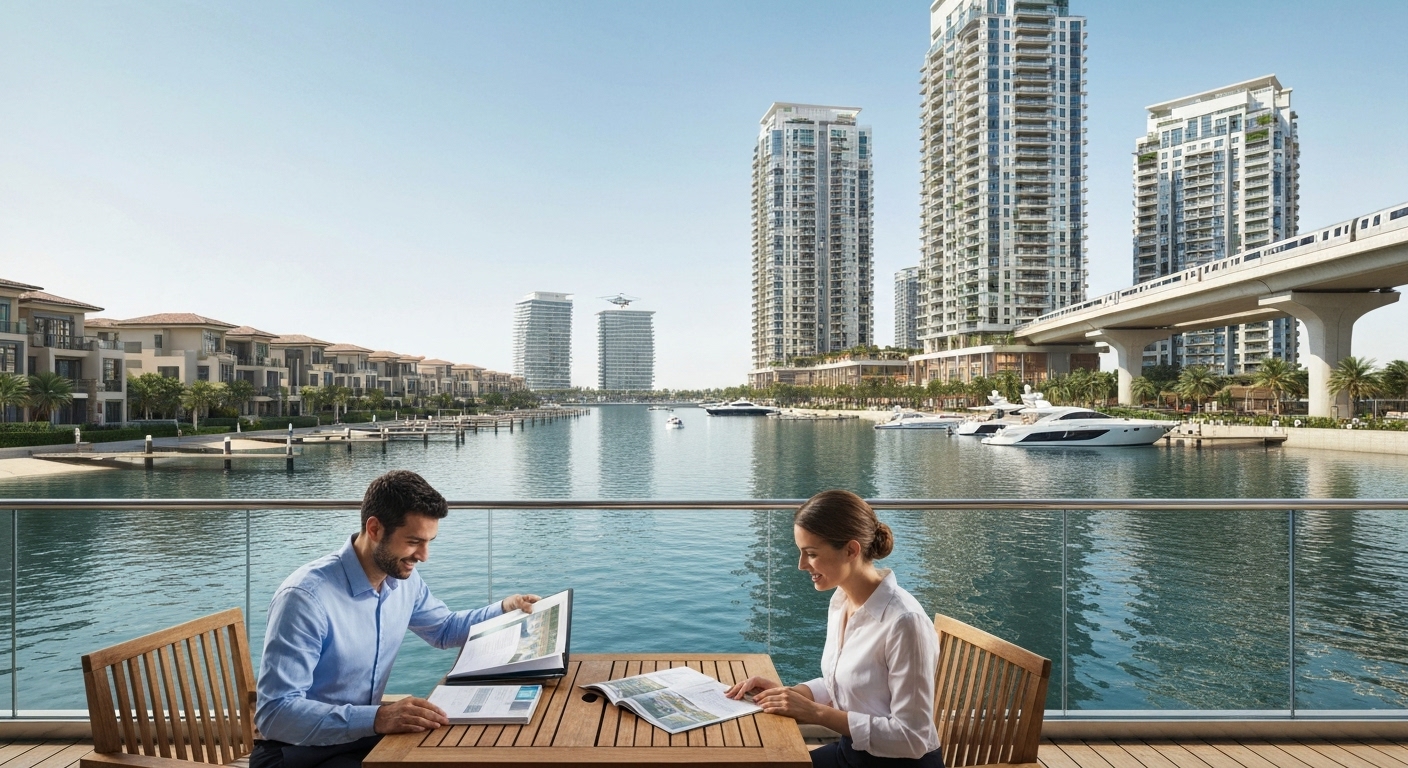If you’re an overseas investor exploring Dubai real estate, understanding the legal differences between freehold and leasehold properties is crucial. This article directly compares these ownership structures, outlining what international buyers need to know to invest confidently in Dubai’s dynamic property market.
Freehold vs. Leasehold: The Core Differences in Dubai Property Ownership
The primary legal distinction between freehold and leasehold properties in Dubai lies in the scope and duration of ownership rights. Freehold property ownership grants investors full legal title to the property and the land it stands on, usually with the right to sell, lease, or pass the property on as inheritance without restrictions on nationality. By contrast, leasehold ownership typically offers the right to occupy and use the property for a prescribed period—commonly 30 to 99 years—but not the underlying land. At expiry, ownership of the property reverts to the freeholder unless the lease is renewed.
For overseas investors, this legal framework means freehold provides potential for long-term capital growth and legacy planning, while leasehold is more akin to a long-term tenancy with eventual expiration or renegotiation.
Understanding Freehold Property in Dubai: Benefits and Considerations
Freehold ownership in Dubai was formally introduced in designated zones such as Dubai Marina, Downtown Dubai, and Palm Jumeirah, allowing foreign nationals to buy, sell, and fully own property. According to DarGlobal, the 2002 Freehold Law permits foreigners to own property outright in specific zones, significantly influencing Dubai’s foreign homeownership trends. The Dubai Land Department issues title deeds directly in the investor’s name, conferring outright ownership for an unlimited period.
Key Benefits of Freehold Ownership
– Full legal rights: Owners can lease, resell, or transfer the property at will.
– Inheritance and resale: Heirs may inherit freehold properties, making it a robust legacy asset.
– Golden Visa eligibility: Qualifying freehold investments may make overseas buyers eligible for long-term UAE residency ([verify Danube KB for eligibility criteria]).
– No lease expiry worries: Ownership is indefinite, supporting capital appreciation and portfolio stability.
However, buyers should consider costs like the upfront purchase price, transfer fees, and ongoing maintenance. Additionally, freehold properties are typically located in prime neighbourhoods, commanding higher initial investments, often upwards of AED 1 million (Gulf Business reports freehold options are concentrated in high-demand areas).
Navigating Leasehold Property in Dubai: Essential Details and Potential Challenges
Leasehold properties are commonly offered in select Dubai areas, such as parts of Green Community and Dubai Silicon Oasis, with overseas investors granted rights for up to 99 years. While leasehold can be more accessible in terms of initial investment, the ownership is fixed-term.
Common Leasehold Considerations
– Limited duration: Rights expire at the end of the contract, with all improvements typically reverting to the freeholder unless an extension is negotiated.
– Resale potential: Properties can be bought or sold during the lease term but may depreciate as the expiry nears.
– Renewal and renegotiation: Upon lease expiry, renewal terms are subject to the freeholder’s consent and may involve additional negotiation or payments.
– Fewer financing options: Some banks offer limited mortgage products for leasehold titles, impacting affordability.
– Restrictions on modifications: Major alterations may require freeholder approval, limiting flexibility for investors.
For more on regulatory safeguards including RERA and escrow accounts, see RERA, DLD, Escrow Accounts: Understanding Legalities and Safeguarding Dubai Property Buyers.
Dubai’s Property Landscape: When is Freehold or Leasehold the Right Choice?
The optimal ownership structure depends on the investor’s objectives. Freehold properties are ideal for those seeking to establish a permanent asset base in Dubai—supporting both end-use and long-term rental income. As noted by Gulf Business, freehold properties offer full ownership rights—including the ability to resell, lease, or pass properties on to heirs—making them attractive to long-term investors. Leasehold, meanwhile, can present a cost-effective means of entering Dubai’s property market, appealing to those with shorter investment timeframes or restricted budgets (verify Danube KB for lowest entry points)[source].
In dynamic districts such as Business Bay or Jumeirah Village Circle, both models may be available, though freehold remains the preference for capital preservation and portfolio growth.
The Dubai Property Purchase Process: A Step-by-Step Guide for Overseas Buyers
Conclusion
For overseas investors, understanding the legal differences between freehold and leasehold properties in Dubai is essential to making a sound real estate decision. Freehold offers superior long-term security and flexibility, while leasehold provides a viable path for those seeking a lower capital outlay, albeit with defined term limits. Both structures are regulated to safeguard investor interests, but careful due diligence and advice from reputable developers like Danube Properties remain vital. To tailor your Dubai property portfolio to your investment goals, contact Danube Properties or consult with a local expert.




